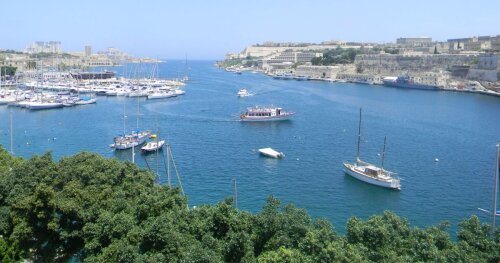Best Nonprofit & Charitable Organizations Lawyers in Pietà
Share your needs with us, get contacted by law firms.
Free. Takes 2 min.
List of the best lawyers in Pietà, Malta
About Nonprofit & Charitable Organizations Law in Pietà, Malta
Nonprofit and charitable organizations in Pietà, Malta play a critical role in serving the community through various activities related to health, education, social support, arts, and culture. These organizations operate on a not-for-profit basis, meaning surplus revenues are used to further their mission, not for the benefit of private individuals or shareholders. The legal landscape for such organizations is governed primarily by Maltese national law, with local considerations specific to Pietà, where these organizations must also comply with municipal regulations.
To function lawfully, charitable organizations in Pietà must register with relevant national authorities, meet transparency and governance standards, and maintain compliance with ongoing obligations such as reporting and accountability. This helps protect public trust and ensures that nonprofits fulfill their objectives ethically and effectively.
Why You May Need a Lawyer
There are several situations in which individuals or groups planning to establish or operate a nonprofit or charitable organization in Pietà, Malta may require legal assistance:
- Guidance on legal requirements for setting up a nonprofit or foundation, including drafting statutes and constitutions
- Assistance with the registration process under Maltese law, ensuring all documentation is complete and accurate
- Advice on compliance with local and national regulatory obligations, such as annual reporting and financial disclosures
- Help managing governance issues involving boards, trustees, or internal disputes
- Legal review of contracts, grants, sponsorships, or employment within the organization
- Advising on the handling of charitable donations, bequests, and tax-deductible contributions
- Support with restructuring, mergers, or winding up a nonprofit entity
- Representation in case of investigations, disputes, or litigation involving the organization
Due to the complexity and evolving nature of nonprofit law in Malta, legal advice can be crucial throughout the lifecycle of an organization.
Local Laws Overview
In Pietà, Malta, nonprofit and charitable organizations are primarily regulated under the Voluntary Organisations Act (Chapter 492 of the Laws of Malta). The Act defines what constitutes a voluntary (nonprofit) organization, outlines registration procedures, and imposes governance, transparency, and reporting standards.
Key aspects of local law relevant to nonprofits include:
- Registration: Nonprofits must register with the Commissioner for Voluntary Organisations to benefit from legal recognition and certain tax advantages.
- Governance: Organizations must have statutes or constitutions that comply with legal requirements, including board composition and internal control mechanisms.
- Reporting: Annual returns and financial statements must be submitted to authorities to ensure compliance and public transparency.
- Taxation: Registered nonprofit organizations may be eligible for exemptions from certain taxes, but must follow specific rules regarding how income and donations are managed.
- Fundraising: Laws regulate public fundraising and collection of donations to ensure the ethical handling of funds.
- Supervision: The Commissioner for Voluntary Organisations has the power to oversee, investigate, and take action against organizations that breach legal obligations.
In Pietà, municipal authorities may also regulate the use of public spaces, event permits, and local health and safety standards for nonprofit activities.
Frequently Asked Questions
What is considered a nonprofit or charitable organization in Pietà, Malta?
A nonprofit or charitable organization in Pietà is an entity that operates for a public benefit without the intention of generating profit for its members. It may include foundations, associations, or societies with social, educational, cultural, religious, or humanitarian goals.
How do I register a nonprofit organization in Pietà, Malta?
You must prepare a statute or constitution and apply for registration with the Commissioner for Voluntary Organisations. The process involves providing details about the organization's objectives, governance structure, and financial management plans.
Are there specific tax benefits for registered nonprofits in Malta?
Yes, registered nonprofits may qualify for tax exemptions on certain income, as well as VAT reductions under certain conditions. Proper registration is essential to access these benefits.
How does the law ensure nonprofit transparency and accountability?
Nonprofits are required to keep accurate records, submit annual returns and financial statements, and follow strict governance rules as per the Voluntary Organisations Act.
Can a foreign organization operate as a nonprofit in Pietà, Malta?
Yes, but foreign organizations must register locally to conduct activities in Pietà and comply with Maltese legal requirements.
What obligations must nonprofit board members or trustees meet?
Board members and trustees are responsible for the legal compliance, governance, financial management, and reporting obligations of the organization.
What are the consequences of not registering a nonprofit?
Operating without registration can lead to penalties, inability to fundraise legally, or loss of tax benefits. Unregistered entities may also face legal challenges and reputational damage.
Can nonprofits employ staff and pay salaries?
Yes, nonprofits can employ staff and pay salaries, provided that profits are not distributed among members but reinvested in the organization's mission.
How are charitable donations regulated in Pietà, Malta?
The collection, administration, and spending of donations are regulated by law to prevent misuse. Only registered organizations can solicit donations from the public.
How can a nonprofit dissolve or wind up in Pietà?
Dissolution must follow the procedure set by the organization’s statute and Maltese law. Assets must be distributed according to legal requirements, typically for similar charitable purposes.
Additional Resources
If you need further information or support with nonprofit and charitable organizations law in Pietà, Malta, the following resources may be helpful:
- Commissioner for Voluntary Organisations: The government regulator overseeing registration, compliance, and support for voluntary organizations in Malta.
- Office of the Commissioner for Revenue: For guidance on taxation and fiscal matters relevant to registered charities.
- Pietà Local Council: For local regulations on event permits, use of public spaces, or community initiatives.
- Notary Public or Legal Advisor: For assistance with preparing statutes, contracts, and compliance documents.
- Maltese Ministry for Social Policy and Children’s Rights: Supporting the development and regulation of nonprofits across the country.
Next Steps
If you are considering establishing or operating a nonprofit or charitable organization in Pietà, Malta, follow these steps:
- Identify the purpose and objectives of your organization
- Draft a constitution or statute in compliance with Maltese law
- Consult with a local legal professional or specialist in nonprofit law to ensure all requirements are met
- Register your organization with the Commissioner for Voluntary Organisations
- Set up proper governance and financial controls
- Familiarize yourself with ongoing legal and reporting obligations
- Access resources or attend workshops offered by relevant authorities to stay updated on legal developments
- If you encounter complex or contentious issues, seek personalized legal advice from a qualified lawyer experienced in Maltese nonprofit law
By following these steps, you can ensure your organization is operating legally and is well positioned to achieve its mission while serving the community in Pietà, Malta.
Lawzana helps you find the best lawyers and law firms in Pietà through a curated and pre-screened list of qualified legal professionals. Our platform offers rankings and detailed profiles of attorneys and law firms, allowing you to compare based on practice areas, including Nonprofit & Charitable Organizations, experience, and client feedback.
Each profile includes a description of the firm's areas of practice, client reviews, team members and partners, year of establishment, spoken languages, office locations, contact information, social media presence, and any published articles or resources. Most firms on our platform speak English and are experienced in both local and international legal matters.
Get a quote from top-rated law firms in Pietà, Malta — quickly, securely, and without unnecessary hassle.
Disclaimer:
The information provided on this page is for general informational purposes only and does not constitute legal advice. While we strive to ensure the accuracy and relevance of the content, legal information may change over time, and interpretations of the law can vary. You should always consult with a qualified legal professional for advice specific to your situation.
We disclaim all liability for actions taken or not taken based on the content of this page. If you believe any information is incorrect or outdated, please contact us, and we will review and update it where appropriate.









